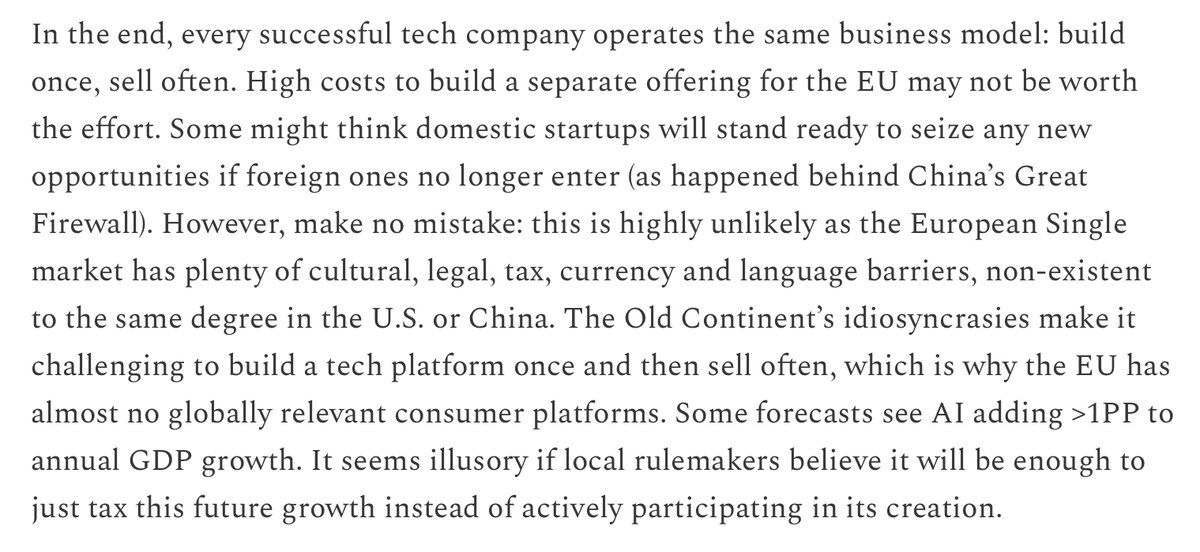/ Thread $GOOG $AAPL $META The Digital Markets Act is in effect for more than a full quarter now. It’s a new EU law that regulates large tech companies and e.g. Alphabet, Apple and Meta must follow a long list of new obligations. Below’s an overview of what has changed so far.
1/ “Gatekeepers” are the largest providers of digital core platform services (CPS) in the EU and only they are governed by the DMA. The EC originally designated six firms as gatekeepers: Google, Amazon, Apple, ByteDance, Meta, and Microsoft. $BKNG is the newest addition to the
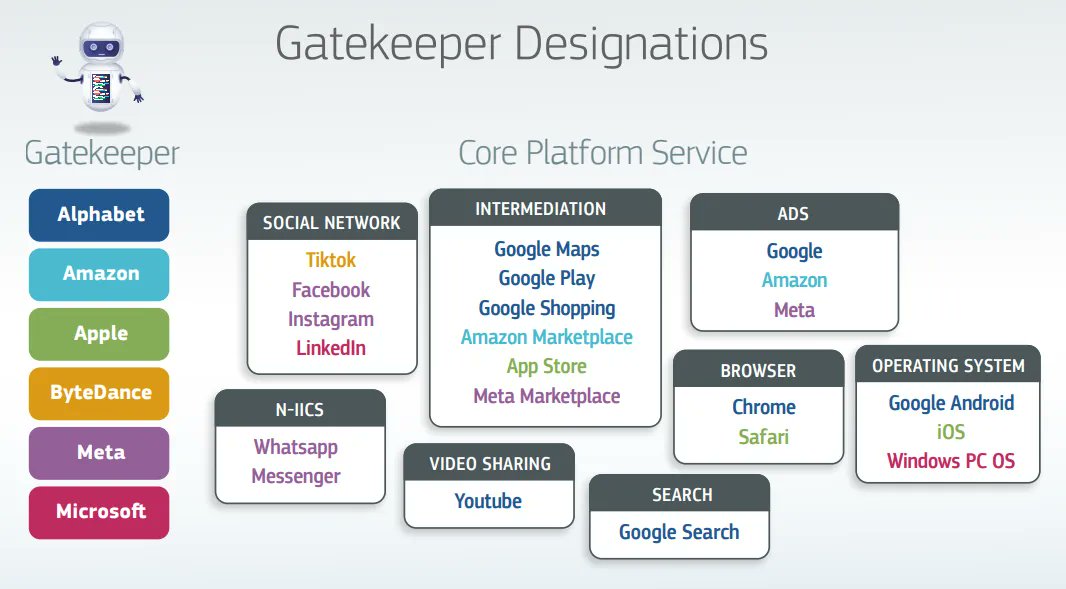
2/ But what exactly are the obligations? And how do they impact a company’s behavior? If one goes through the full text of the law, one basically ends up with a list of four “Dos” and four “Don’ts”. You can see the four “Dos” below, i.e. what a gatekeeper must allow in the EU:

3/ “Do” number 1 was partly construed to enable interoperability between messaging services. A Signal or Telegram user in the EU shall have the ability to send a message to a WhatsApp user without downloading WhatsApp. The gatekeeper, in this case Meta, must invest to build the
4/ Below, you can see the four “Don’ts”, i.e. what a core platform service provider may no longer engage in:

5/ The list of “Don’ts” starts with a banger. “Don’t” number 1 bans self-preferencing of a gatekeeper’s own offerings in rankings, crawling and indexing which exerts a meaningful adverse impact on Google’s SERP design in the EU (see below). “Don’t” number 3 shall provide users
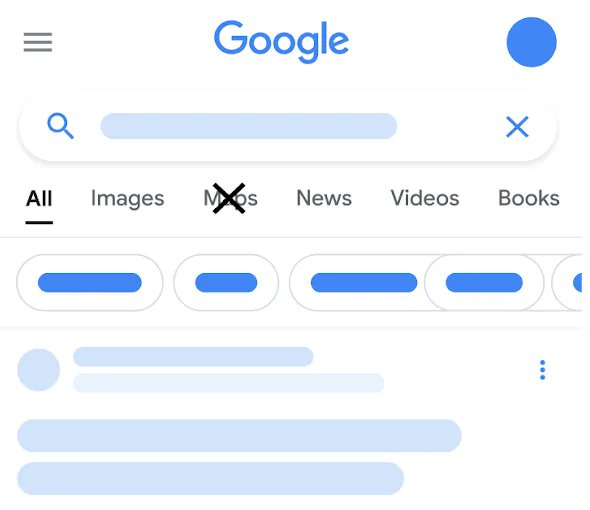
6/ None of these obligations fell from the sky. The DMA builds to a large extent on historical EC antitrust decisions against individual gatekeepers. Despite some of those decisions being appealed and not considered settled case law, the restrictions are now imposed on all seven
7/ The Google Shopping decision can be considered the EC’s original sin in its tech regulation evolution. For the first time, it forced a tech company (Google) to alter its screen design not only for the sake of the company’s own two prior motives, i. e. a) serve users better or
8/ Lots of users are annoyed by the design changes Google brought to its Search Engine Results Page (SERP) in Europe and often don’t even know that these changes stem from Google complying with the DMA. “Google fu**ing everything up. Not only is Maps not showing in searches,
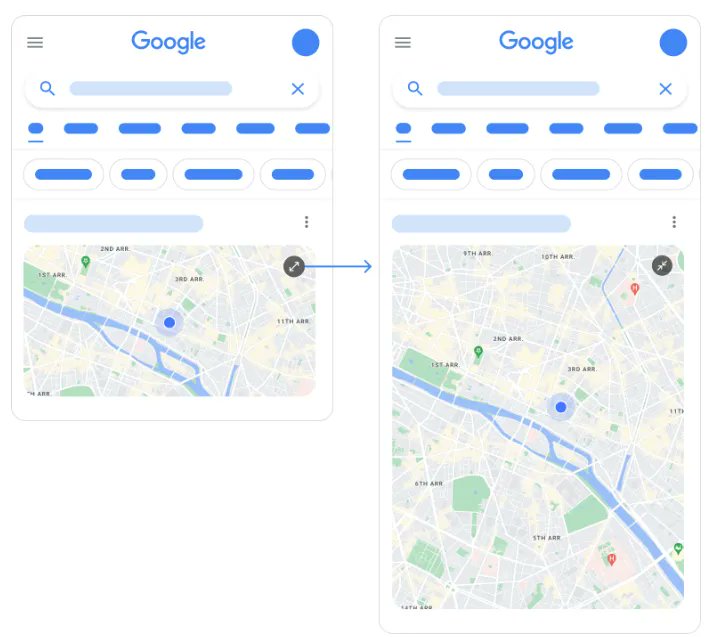
9/ Besides Google, three important changes that the DMA brought on the other gatekeepers circle around the following three current battlefields: 1. Messaging Interoperability 2. Choice Screens 3. App Stores
10/ Messaging Interoperability: Article 7 of the DMA introduces the interoperability requirements for messaging apps amongst others. They sound great in theory, but run into a roadblock in practice as they make it difficult to maintain a uniform level of encryption and feature
11/ Since Threema and Signal already use the Signal protocol, onboarding these two players to the liking of the EC should be a no-brainer, right? Wrong! Meredith Whittaker, Signal’s president, expressed no interest at all opting into WhatsApp’s terms of service because:
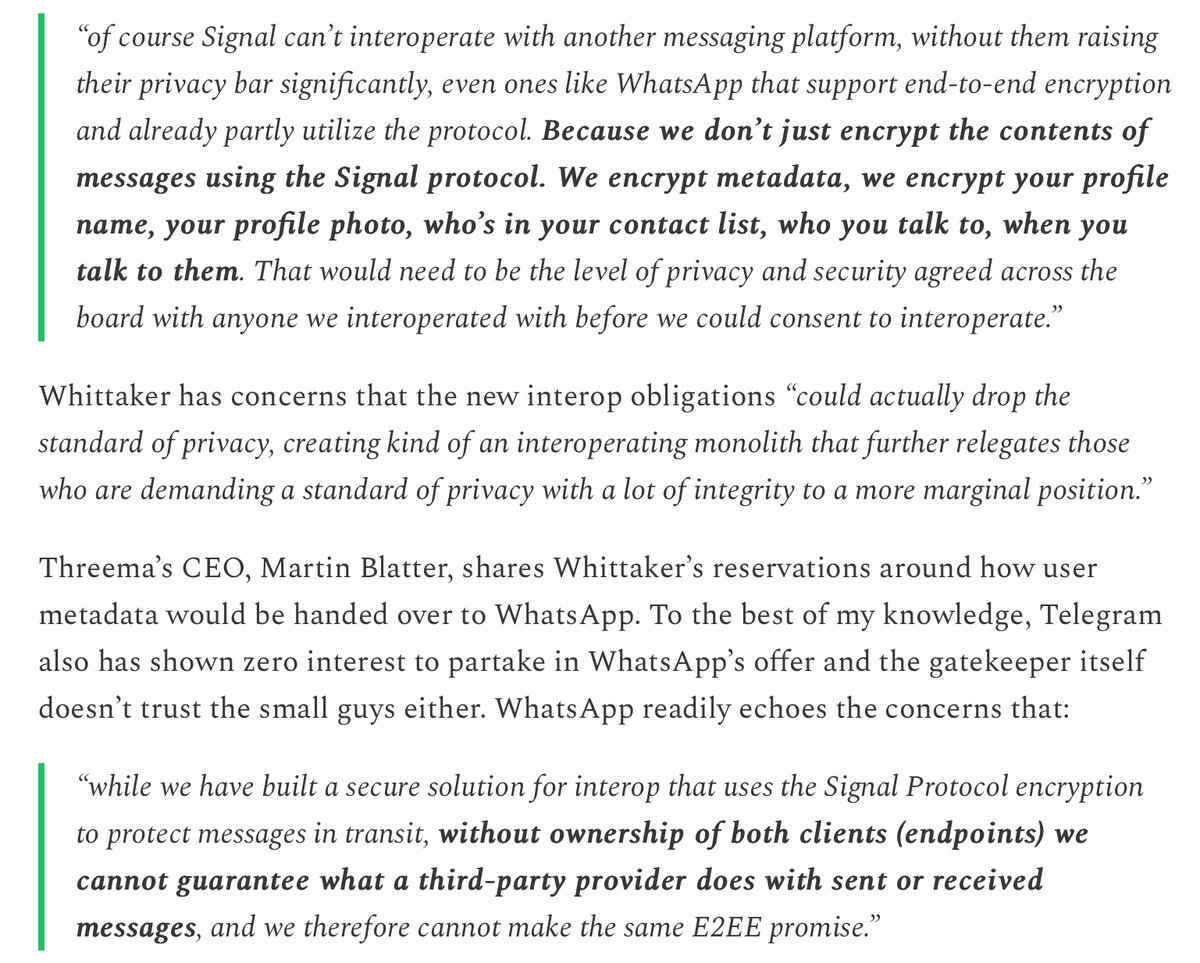
12/ Choice Screens: Article 6(3) of the DMA introduces the gatekeepers’ obligations to display choice screens whenever a user first uses a web browser or a search engine. An EU buyer of a new iPhone or Android device must click through one or two choice screens. The new DMA
13/ App Stores: Article 6(4) of the DMA introduces gatekeepers’ obligations to allow sideloading. Next, Article 5(4) states that gatekeepers shall allow app developers to steer already acquired end users - free of charge - towards alternative cheaper offers outside the
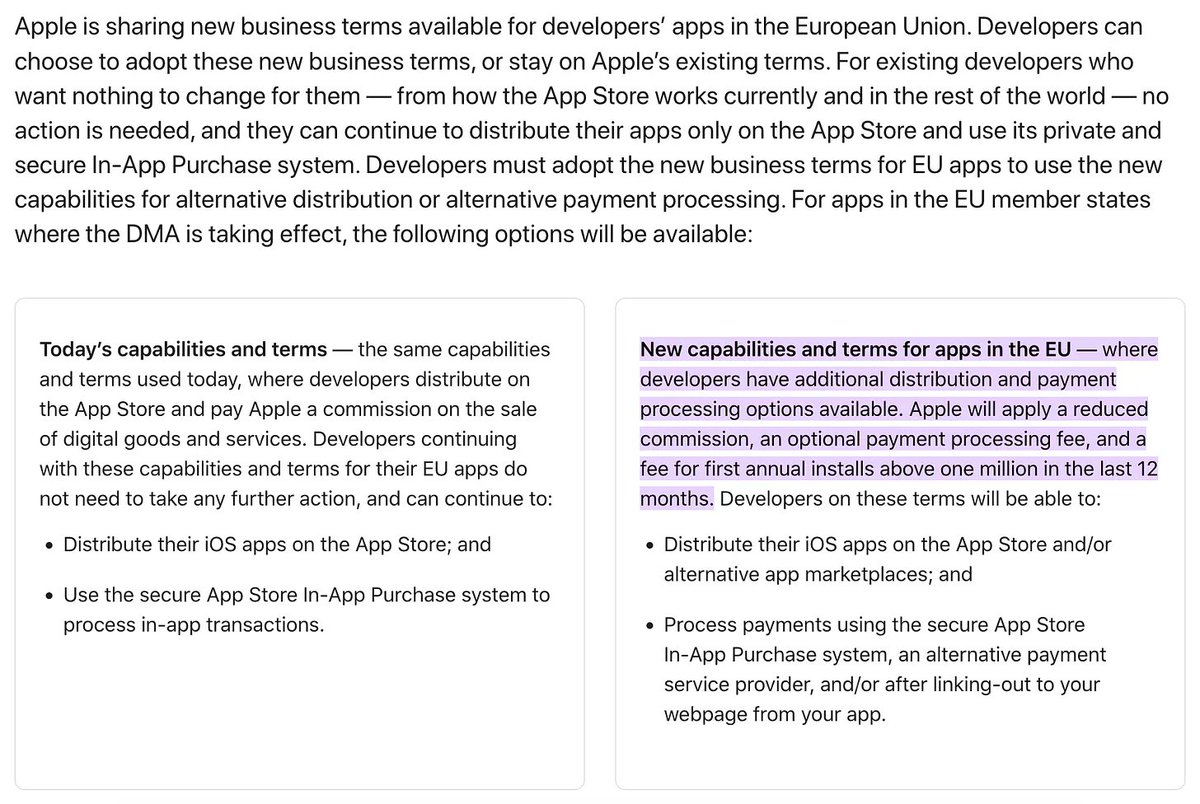
14/ Apple’s new terms are requisite to use any of the new DMA mandated capabilities. They come with a reduced 17% commission rate (lowered to 10% for small businesses or subscriptions after the first year) and developers no longer must use IAP. However, if they still wish to use
15/ Apple is currently testing the limits of the DMA. The reason why Apple fights back so hard is simple: It doesn’t want to endanger its global profit pool of ~$20 bn from App Store commissions, nor does it want the EC’s initiatives to be emulated by U.S. regulators. Thus, the
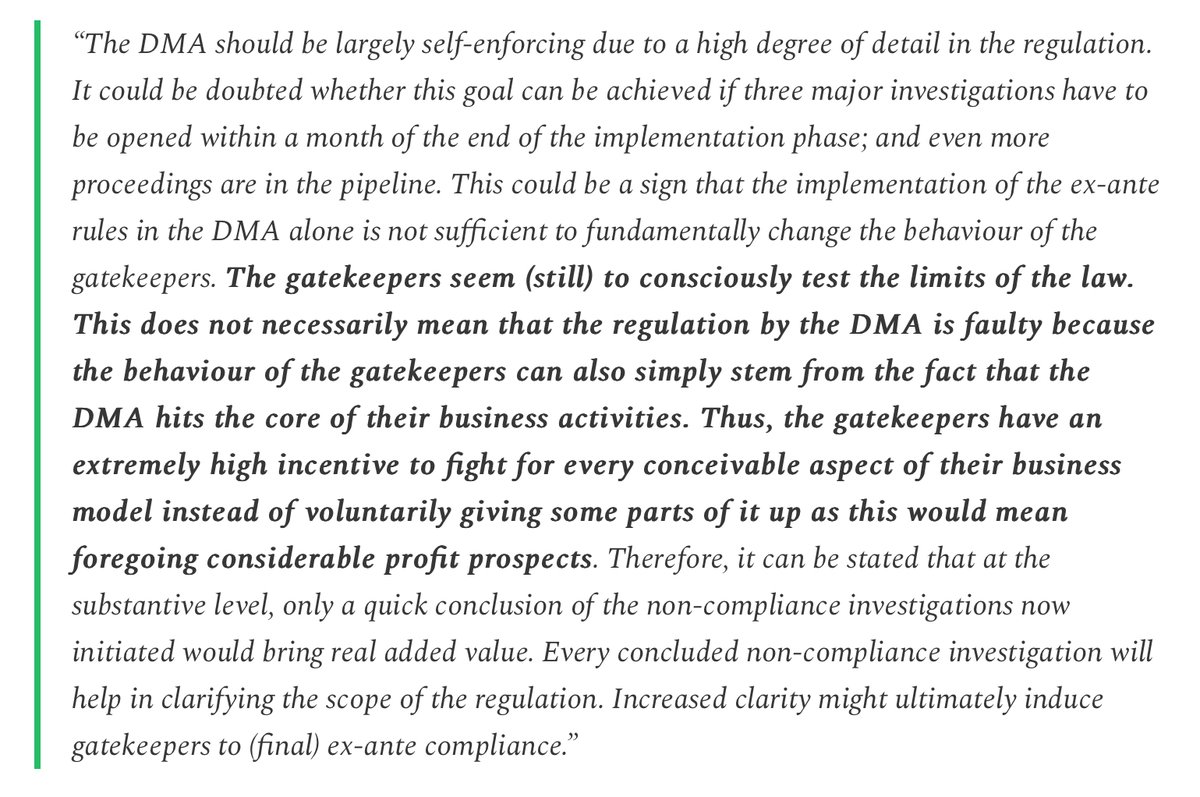
16/ Still, the company most broadly hit by the new DMA obligations is clearly $GOOG because in the eyes of the EC, Google’s parent company provides eight CPS, the most of any gatekeeper. Below you see an overview of how the DMA impacts each of Alphabet’s CPSs based on an
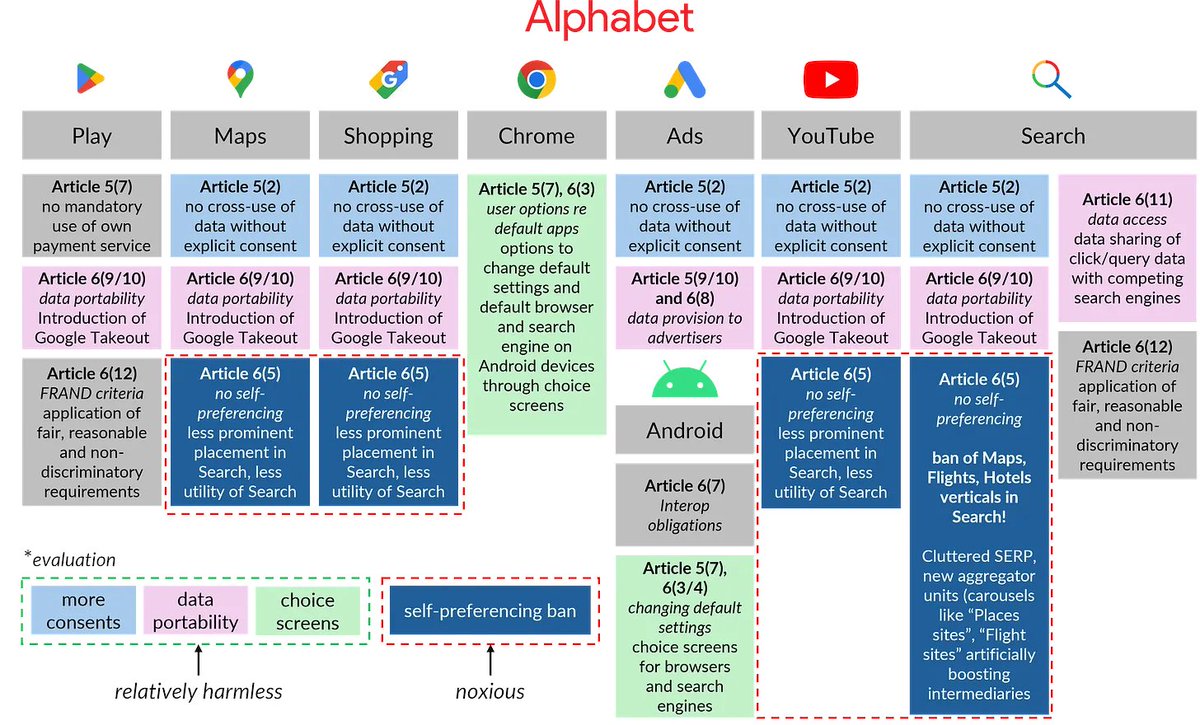
17/ What’s worse is that going forward, the DMA could ban Google from displaying its own AI capabilities prominently in a rich format, near the top of its SERP. Per the EC’s logic, this could constitute an illegal form of self-preferencing while the primary design goal would
18/ In sum, the EC’s DMA is making Google a worse product in the EU vs. elsewhere. Should the local regulatory environment not change, a transatlantic bifurcation in the quality of tech services appears likely. This is not a hypothetical: Apple has announced to hold back Apple
19/End One may think each of these non-launches is irrelevant in itself but the collective unintended second-order effects of the EU slowly falling behind and engineers not being able to build on top of the most cutting-edge technology may not be. Which brings me to the
